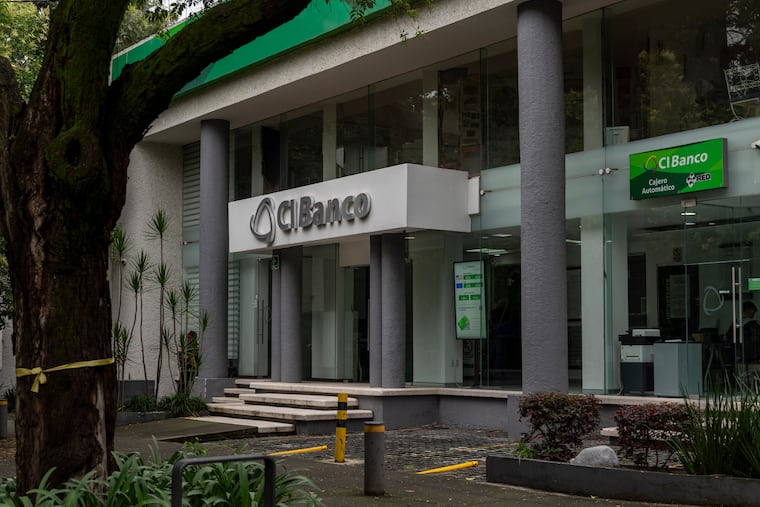U.S. Finance Ban Now Effective, Following Significant Impact on Mexican Companies.
The U.S. Treasury’s unprecedented decision to sever ties with three Mexican financial institutions, citing their alleged roles in facilitating drug cartel activities, is set to come into effect on Monday. This action signals a substantial shift within the Mexican banking landscape and raises considerable concerns about wider financial repercussions.
The financial institutions targeted—CIBanco SA, Intercam Banco SA, and Vector Casa de Bolsa SA—have already undergone significant disruption. They have been effectively dismantled, with their assets sold off following the enforcement of the Treasury’s ban. Many clients, particularly within the foreign exchange sector, have departed for other banks or brokerages since the announcement, signaling a rapid withdrawal of business that could undermine the stability of these financial firms.
In light of these developments, the broader banking industry in Mexico is now operating under increased vigilance. Financial institutions are diligently reviewing their client profiles, tightening internal compliance measures, and enhancing communication with U.S. and Mexican regulatory bodies. This proactive stance reflects a determination to avoid falling into the crosshairs of U.S. enforcement actions amid the ongoing crackdown on money laundering connected to the fentanyl crisis in the United States.
U.S. officials have reiterated a firm stance against financial institutions that assist drug trafficking operations, underscoring a “zero-tolerance” policy regarding those who aid in laundering funds associated with this public health crisis. The sanctions against the three Mexican firms, instigated under the powers granted to the Financial Crimes Enforcement Network (FinCEN) by the Fend Off Fentanyl Act, represents a decisive use of regulatory authority, with Treasury officials conducting frequent visits to reinforce this message.
The implications of this regulatory move have already been felt in the Mexican financial sector. For instance, Kapital Bank is set to assume a significant portion of Intercam’s operations, while Vector has been involved in transferring various assets and clients to Casa de Bolsa Finamex SAB. Notably, CIBanco’s banking license was revoked earlier this month, prompting the Grupo Coppel’s BanCoppel to acquire its auto loan portfolio. Meanwhile, Banco Multiva SA is taking over CIBanco’s trustee operations—a pivotal segment within Mexico’s financial framework.
While the U.S. Treasury previously downplayed the broader economic implications of its actions, noting that CIBanco and Intercam represent less than 2% of the country’s commercial bank assets, it failed to address the considerable scale of CIBanco’s trustee activities, which are critical for investment vehicles in Mexico. Following the Treasury’s announcement, there has been a marked urgency among Mexican real estate trusts and U.S. private equity firms to alter their trustee arrangements to evade potential complications stemming from the U.S. sanctions.
The FinCEN orders exemplify the Trump administration’s unconventional approach to combating drug trafficking, utilizing a range of tools that have included aggressive military operations against alleged illicit activity. This initiative against Mexican banks forms part of a more extensive strategy aimed at the comprehensive dismantling of drug cartels, employing strong measures with relatively low thresholds for enforcement. Despite President Claudia Sheinbaum’s assertions of insufficient evidence linking the banks to drug trafficking, with Mexican regulatory bodies identifying only procedural issues, the banks have faced substantial fines both from U.S. and local authorities.
As these developments unfold, banks both in Mexico and across the globe are enhancing scrutiny over financial transactions, particularly those involving Chinese entities potentially linked to the production of precursor chemicals used in the manufacture of illicit drugs. The high-stakes environment underscores the deepening interplay between global finance and the fight against drug trafficking, with ramifications for regulatory practices and international banking relations.
Media News Source.







